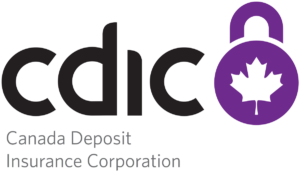Transparency, accountability, and inclusion, these are critical not only to the PCTF, but also to the process by which it is developed.
Inclusive, open, and meets broad stakeholder needs
Just as an identity ecosystem must be open and broad in stakeholder engagement, so too must be the self-governing body that delivers the interoperability framework and supporting materials. The body must include varying orders of government and diverse industry stakeholders across Canada and the international stage. DIACC members and the public must have transparency regarding not only the deliverables, but also in clear rules around how engagement is fostered and ultimately to how votes are taken and how decisions are made.
Transparent in governance and operation
Building on the above principle, an identity ecosystem must also be transparent in its operations, and governance. DIACC takes pride in a transparent approach in developing and delivering materials, with all parties having full clarity throughout every step of the process.
Although transparency and openness are often closely associated, they are not one and the same. Openness means that any individual or organization can participate, and DIACC achieves this through reviews of each draft of the PCTF. This is also evident by our collaborative document reviews that have progressed at an accelerated pace over the past six months.
Transparency, on the other hand, relates to:
- How clearly members can see how DIACC’s work is developing
- What is the governance for the development of the work
- How submitted comments are tracked and handled
- Who our members are, and what benefits are offered to them
- What is our “why” for existing
To ensure fair practice, organizations that seek to connect the interests of diverse participants who have similar priorities with differing areas of focus need to have clear and transparent rules for operation.
The transparency in our collaborative governance helps to ensure that our work is not just another rubber stamping exercise, but rather our deliverables are strongly vetted by diverse Pan-Canadian and international stakeholders to deliver the best possible framework that delivers value to our public and private sectors.
This buy-in is necessary to truly transform Canada, with solutions built on standards that are force multipliers toward realizing a digital-first country. It is crucial to have perspectives from various parties, including service providers and service consumers.
We continually review and revise our operational policies to ensure that they meet the needs of all stakeholders and provide the basis of good governance and fair practices across our organization.
The PCTF Model 3 Draft Recommendation V1.0 recently closed, and based on the input received, DIACC plans to modify and make improvements to this draft, as well as expand on, clarify, and refine its content.
The PCTF Community Editing team will work with DIACC’s Trust Framework Expert Committee (TFEC) to review and resolve comments received, and will then work towards the next iteration of this draft. The open review period for the Privacy Conformance Profile and Component Overview Discussion Drafts is set to begin on August 6.
To be a part of the change you want to see, stay informed about happenings in the digital identity space, learn more about how you can contribute to discussion drafts or become a member, contact us!

